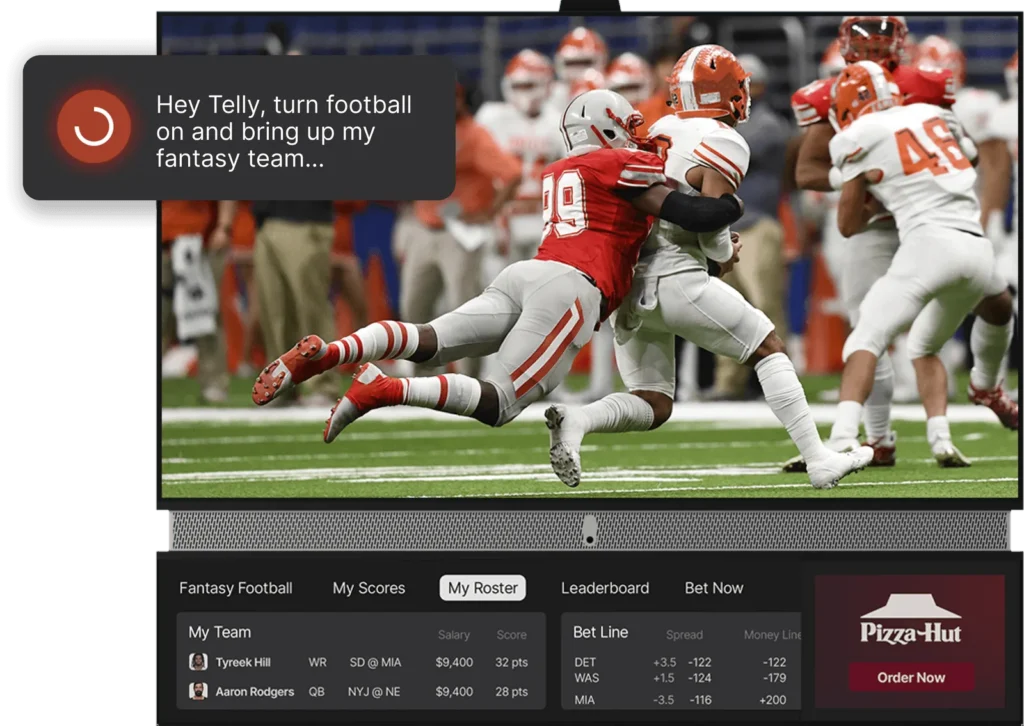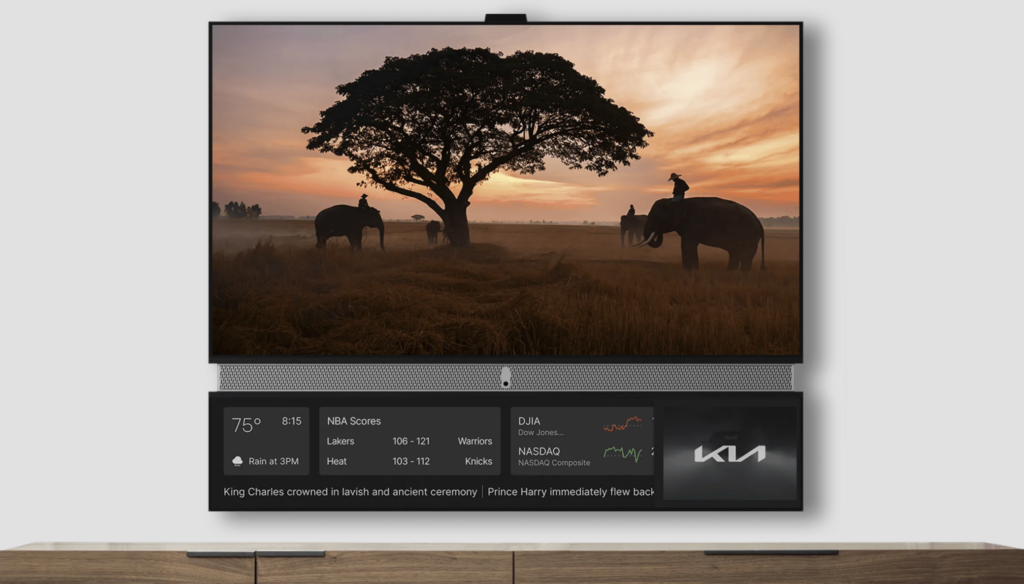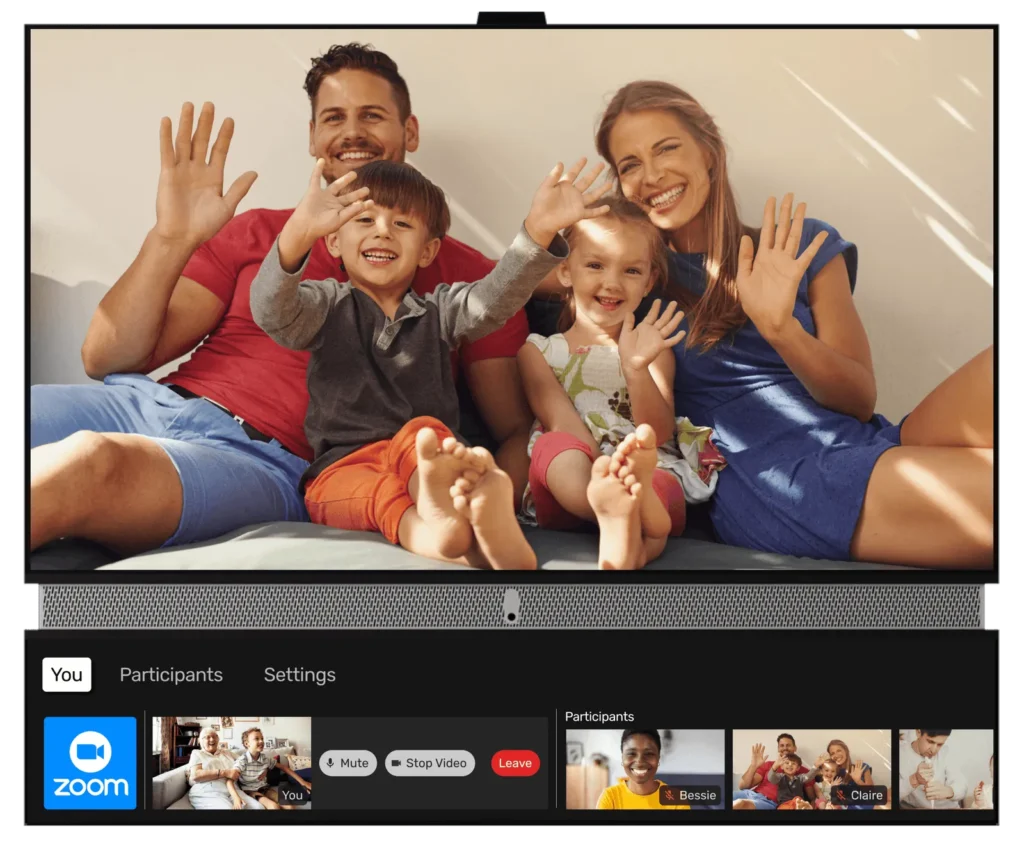Telly’s experiment sounds absurd, but it is not
A free 55-inch 4k TV in your home. Possibly, as long as you agree to watch a good dose of advertisements every day and share a lot of personal data to receive commercials in line with your preferences; this is the deal proposed by Telly, a US startup that is making headlines for its unusual proposal, which, however, is not as absurd as it might appear at first sight. Suppose one considers social networks, applications, and audio and video streaming companies. In that case, there are more and more offers for free or low-cost use of platforms and services in exchange for one’s data. After all, one of the laws of marketing is that if you’re not paying for the product, you’re the product.
How free TV works
Telly takes this concept to the extreme because, on paper, it offers an excellent product, such as a TV set with 4k resolution and smart functionality, with an integrated 5-speaker soundbar, 3 HDMI inputs and 3 USB ports to connect other devices, the TellyOS operating system (which is managed with the initial ‘Hey Telly’) and an Android dongle to take advantage of Google’s Chromecast and use apps such as Netflix, Prime Video and Disney+.
Included in the package worth around €1,000 is the second, smaller screen under the soundbar that divides it from the main screen. Here, advertisements will run non-stop and updates on sports, weather, the stock market, and anything else that interests the user. Through Telly’s artificial intelligence, one can find suggestions and comments on films and TV series when deciding to watch a film streaming, but also a list of 40 video games, including classics and more recent titles.

The tactical screen
The second screen is the core of the system set up by the startup because, in addition to the commercials, it remains active at all times and enables the management of a series of services, such as security cameras and other smart devices connected to the home Wi-Fi network. There is also a webcam on top of the TV, which integrates motion-tracking technology for use during fitness sessions and with other similar apps and games. It goes without saying that the webcam’s physical privacy shutter is active by default and must remain so. Otherwise, the agreement with Telly is broken, and the TV is no longer free of charge, but you pay with the credit card that the startup asks you to enter before agreeing.
Experience and transparency for a new business model
Granted that Telly is only active on the American market at the moment since, in Europe, the proposed business model does not comply with the General Data Protection Regulation on the subject of privacy and security of user data; the experiment also deserves attention because behind it is Ilya Pozin, already co-founder of Pluto TV, a free video streaming service supported only by advertising, which has more than 100 channels, almost 80 million users and is owned by Paramount. This means that, however unprecedented, Telly’s attempt was planned by an experienced team that knows how to ride digital advertising to win people’s trust.



Valid only for those over the age of 18, and with an initial launch of 500,000 free TVs reserved for those who put themselves on a waiting list and answer a series of questions to determine tailor-made ads (an option that is dropped if the pact to see the ad is not fulfilled), Pozin does not fear repercussions or a bad reception from the public over the privacy issue. “We are straightforward and transparent; every person knows what happens when they decide to sign a contract with us,” said the head of the startup. Among the information collected are the audio and video content consumed, the channels viewed and the duration of sessions, and the type of interaction with the TV, such as which buttons and apps are used and which tend to be forgotten.
Regardless of how the experiment goes, Telly is trying to radically change the relationship between the audience and TV, starting with advertising. Agreements with companies to implement their respective services to package an offer capable of attracting consumers are a first step towards overturning the status quo. No more TV sold for low margins, but free TV to secure long-lasting revenues thanks to ads. A plan B contained in a few lines between the terms of service, in which it is made clear that in the future, it is not excluded to charge users for the premium services offered by Telly.



